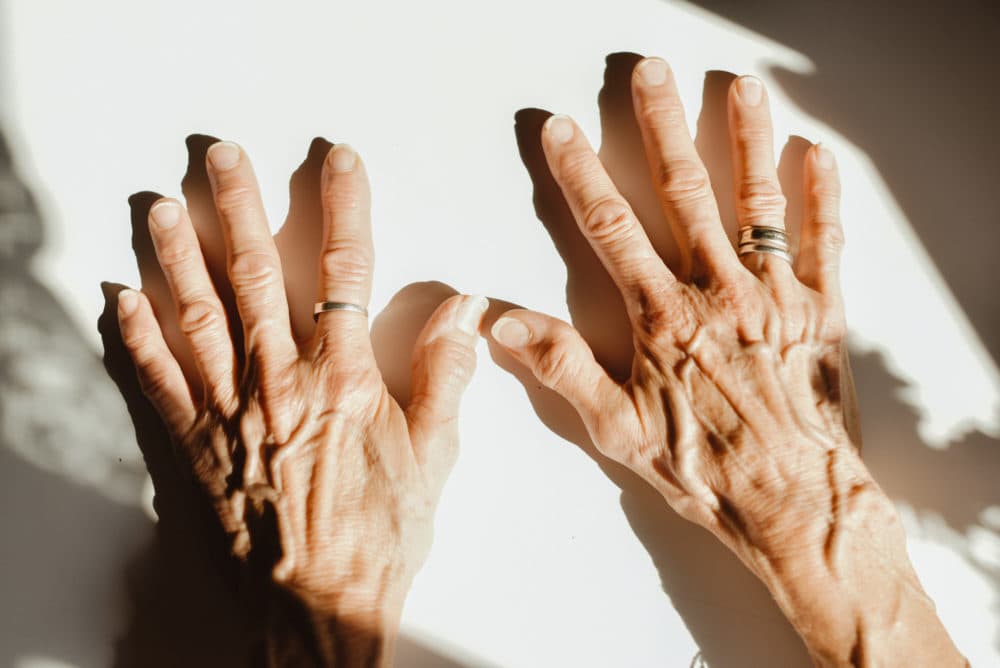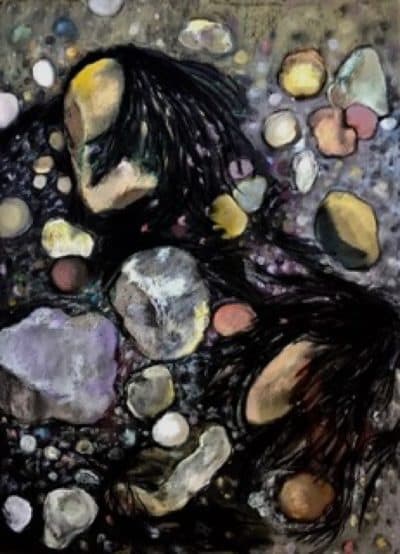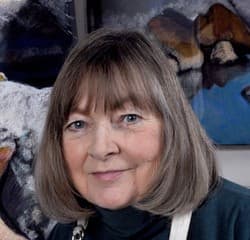Advertisement
Commentary
I'm Old. And I Still Have Things To Do

When you get diagnosed with breast cancer, as I did this year, you get a whole team of people to help you get well. I met my oncology team soon after receiving the dreaded “you have cancer” call. They were a formidable bunch, each of whom looked to be much younger than any of my own children. It was amazing how upbeat and charming they were while they were interviewing me, or while I interviewed them — I was never sure which was the case.
As an octogenarian-plus, I usually rely on impressing a new doctor by what I have been told is my “youthful appearance.” But that is hard to do when you wear a mask and wield a cane and no one seems to care about your outfit. But in a strange way, it was a relief to appear in front of the members of my team in this diminished state, even as I felt unusually generic. To offset this, I tried desperately to ask intelligent questions. Some of my queries: Can this be a simple lumpectomy? What does a full mammogram entail? Will there be chemo? How long is the recuperation period?
What’s curious is that not one of the eminent physicians on my team asked the questions that I considered to be what they really needed to know about me.
Armed with my blood work, all manner of body scans and a lengthy health history, they eventually seemed satisfied that they knew enough to cut me up, stitch me together and send me back into a life characterized by information that appeared briefly on the hospital’s “Patient Gateway” as belonging to “someone who is capable of light housework and clerical work.” I asked about that characterization and my oncologist — the doctor I saw most often during the long months it took to try to shrink the tumor — informed me that this was simply a standard way they had of categorizing the capabilities of their patients. Later I saw that I was described as active and they had included Tai Chi as one of my activities.
My “Patient Gateway” category made me recall the time, years earlier, when I had accompanied an elderly friend to a doctor’s visit. I’d been surprised and a little embarrassed when she loudly declared that she was a very accomplished artist with work in major collections. At the time the doctor was administering a shot of cortisone to her shoulder — the shoulder that helped to operate the arm that made the art — and he didn’t respond. It was awkward and more than a little dispiriting.
I’m also very tired of being told that “Age is just a number.” It isn’t. It’s a natural progression, and we don’t become less human as we do it.
I wasn’t about to quietly acquiesce. So, I decided exactly what I needed the members of my medical team to know about me. Including that I am still engaged in meaningful work and that I want to be made aware of how the planned surgery is likely to affect it.
My friend’s direct approach got her nowhere, so I tried subtle hints, such as “I thought you might want to know that I’m writing a series of poems about my cancer.” The puzzled look I received upon this news, shut me up for the rest of that visit.

It wasn’t until I faced the possible removal of the lymph nodes in my right arm, that I ventured to reveal that I am also a serious right-handed painter. By this time, the team had already decided to try radiation on the nodes instead of removing them, so I can’t claim to have influenced the course of treatment. But would it have been so bad if I had?
Shouldn’t a doctor know about his or her elderly patient’s passions and pursuits and that she is capable of much more than light housework, clerical work and Tai Chi?
Maybe she throws pots or sculpts or creates magnificent gardens well into old age. Maybe she volunteers for Habitat for Humanity or has stories to write or people who still depend upon her as a friend, mentor or confidant. Maybe, she writes a blog. Mine is called “Aging and the Creative Process” and it’s meant to encourage older individuals of every ilk to continue to pursue their dreams.
Advertisement
Of course my doctors, like other medical professionals, treat thousands of people every year. Under our current healthcare system, they’re not usually allowed the time to delve into the intimate aspects of their patients’ lives. What I’m suggesting, however, is not unreasonable.
It is simply that there be some recognition that an older patient’s life is still being lived, that many of us continue to have goals, and that the healing process is better served if our doctors have some inkling of what those goals are.
I’m also very tired of being told that “Age is just a number.” It isn’t. It’s a natural progression, and we don’t become less human as we do it. As we age, we’re no less able to identify with work that still brings us as joy. Those things need to be considered when making decisions about our health.
